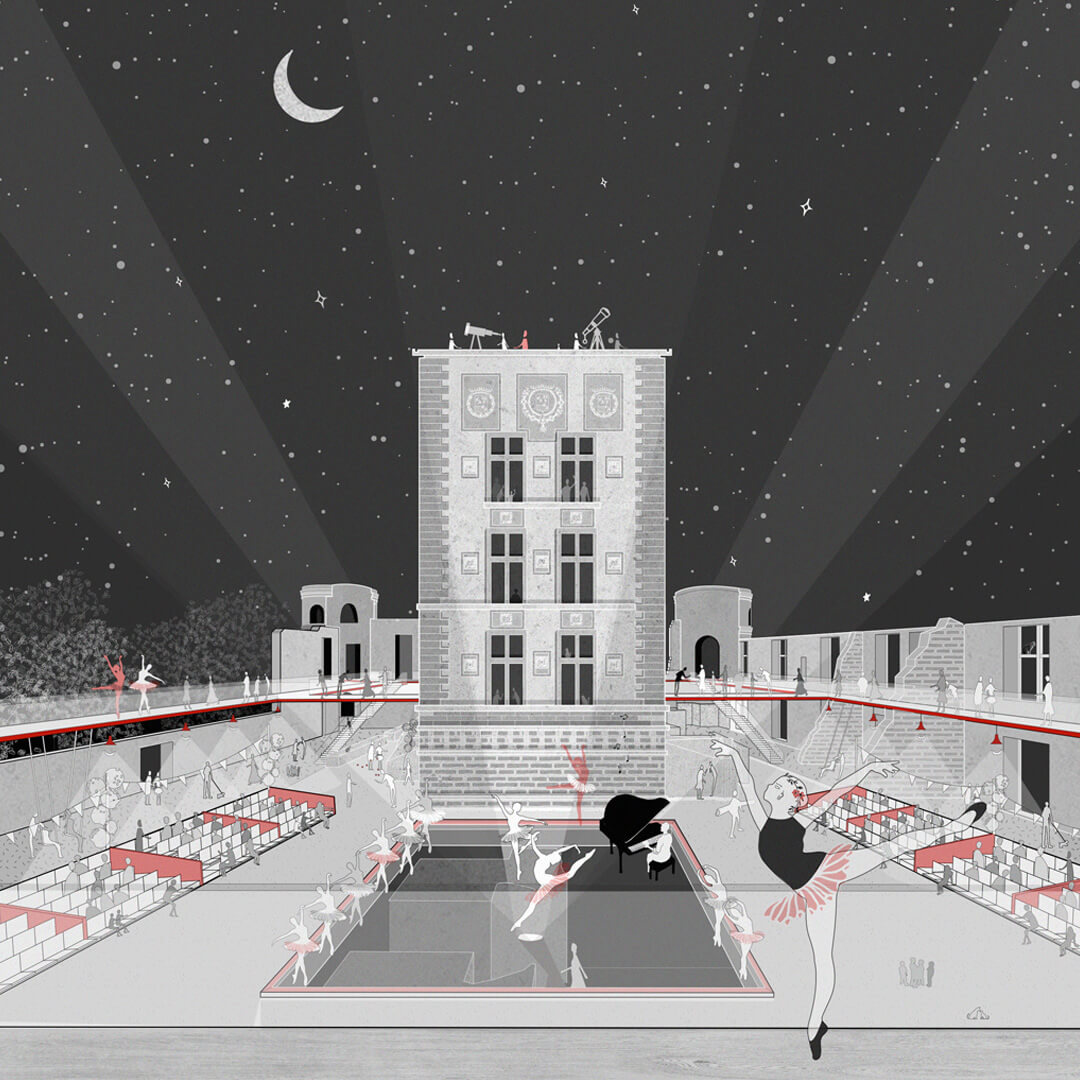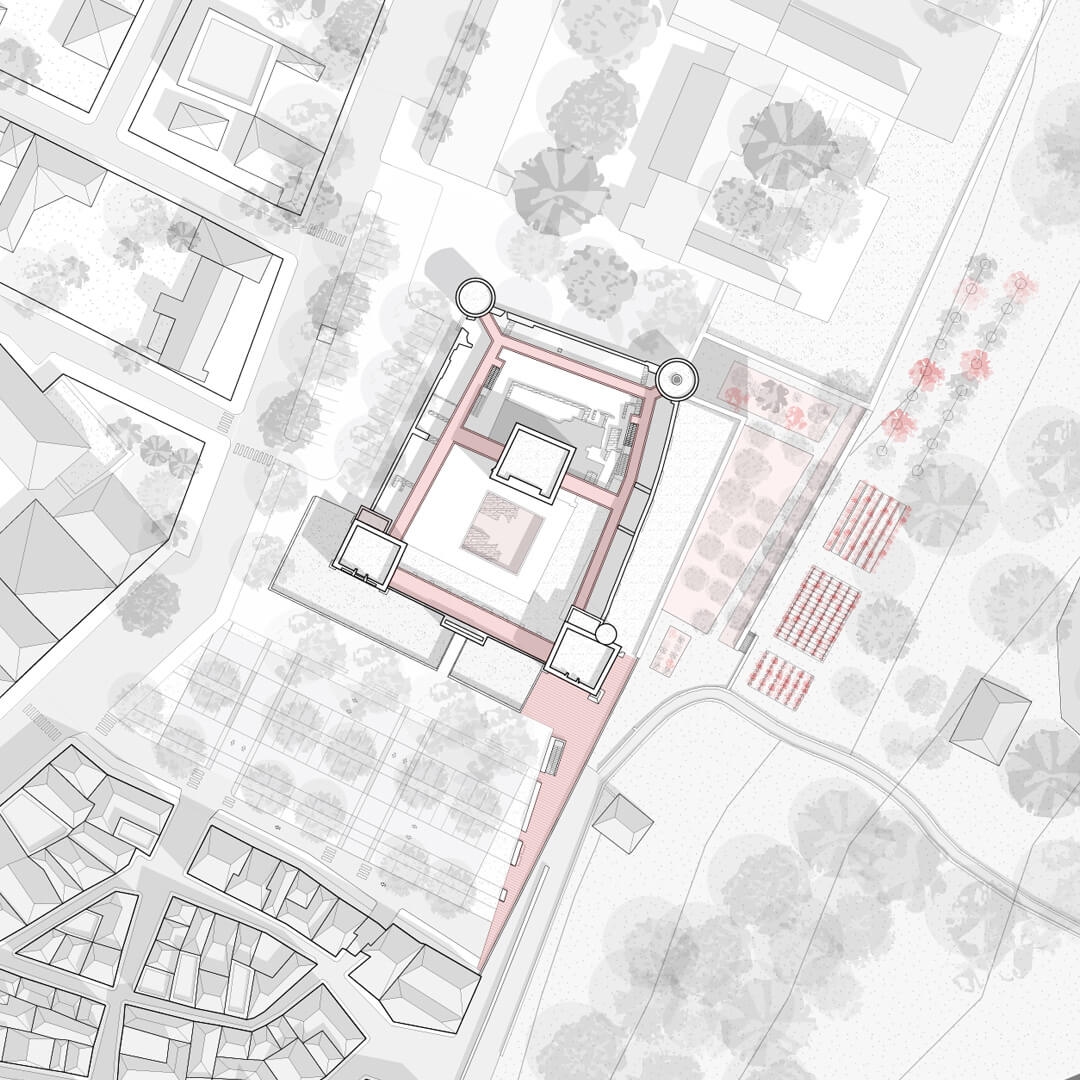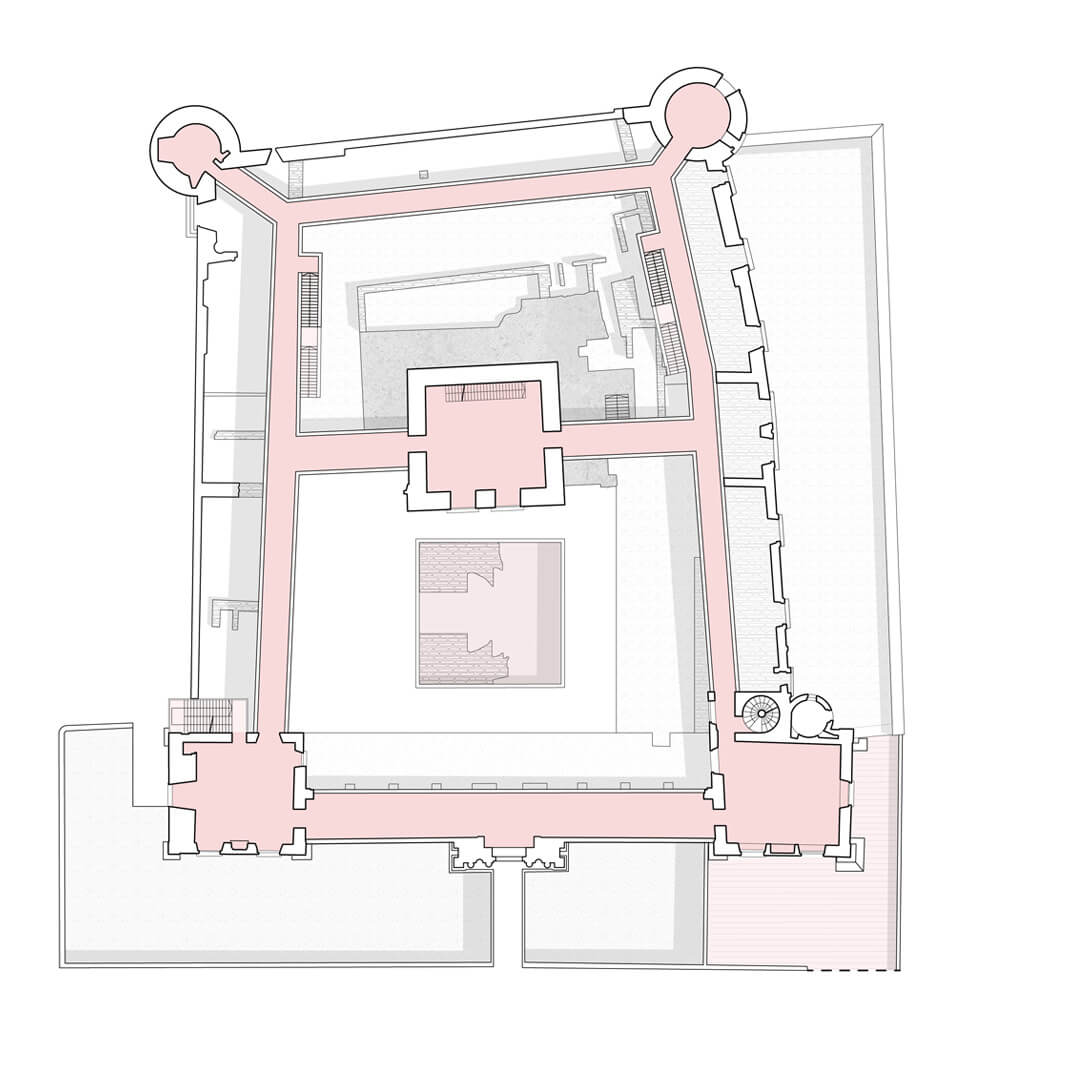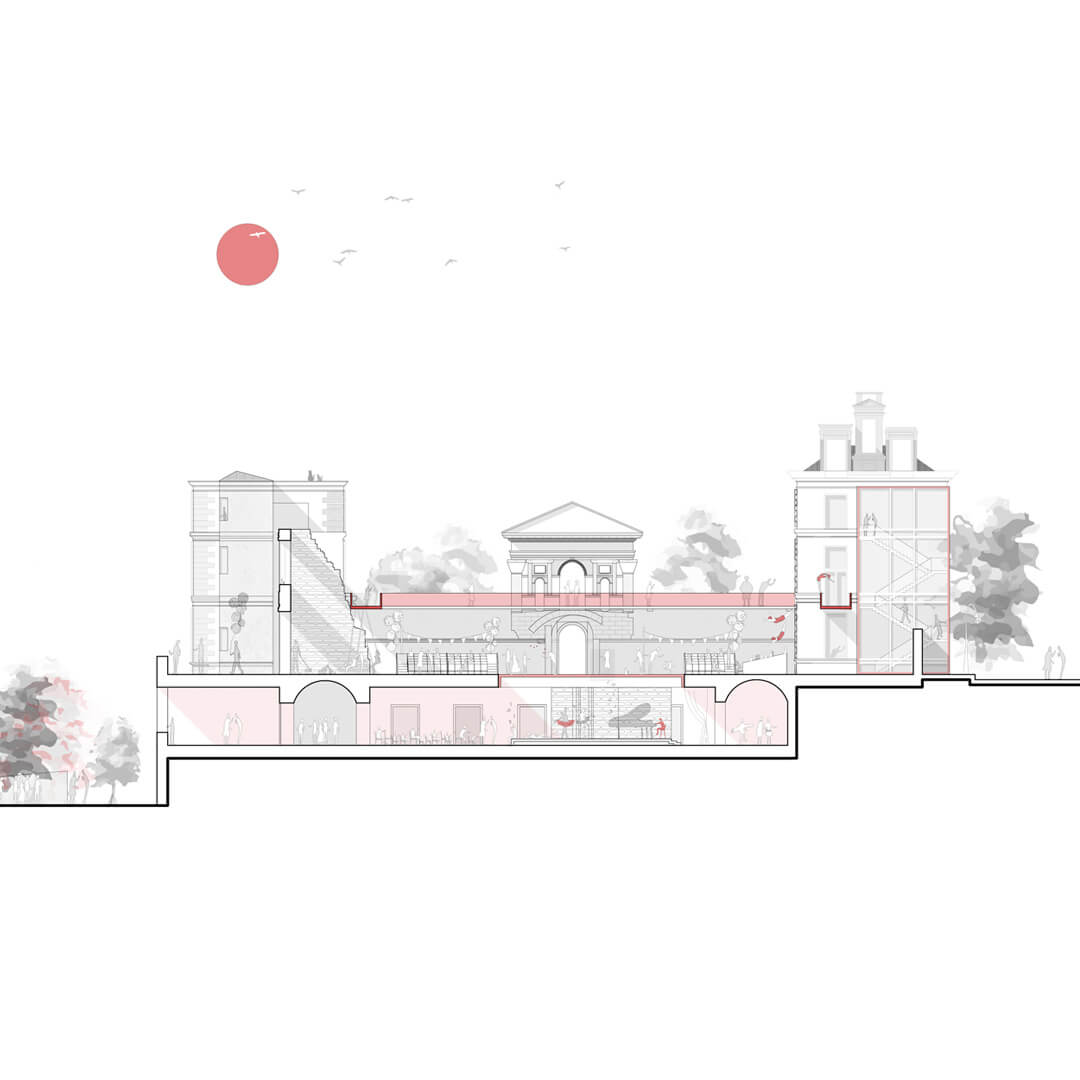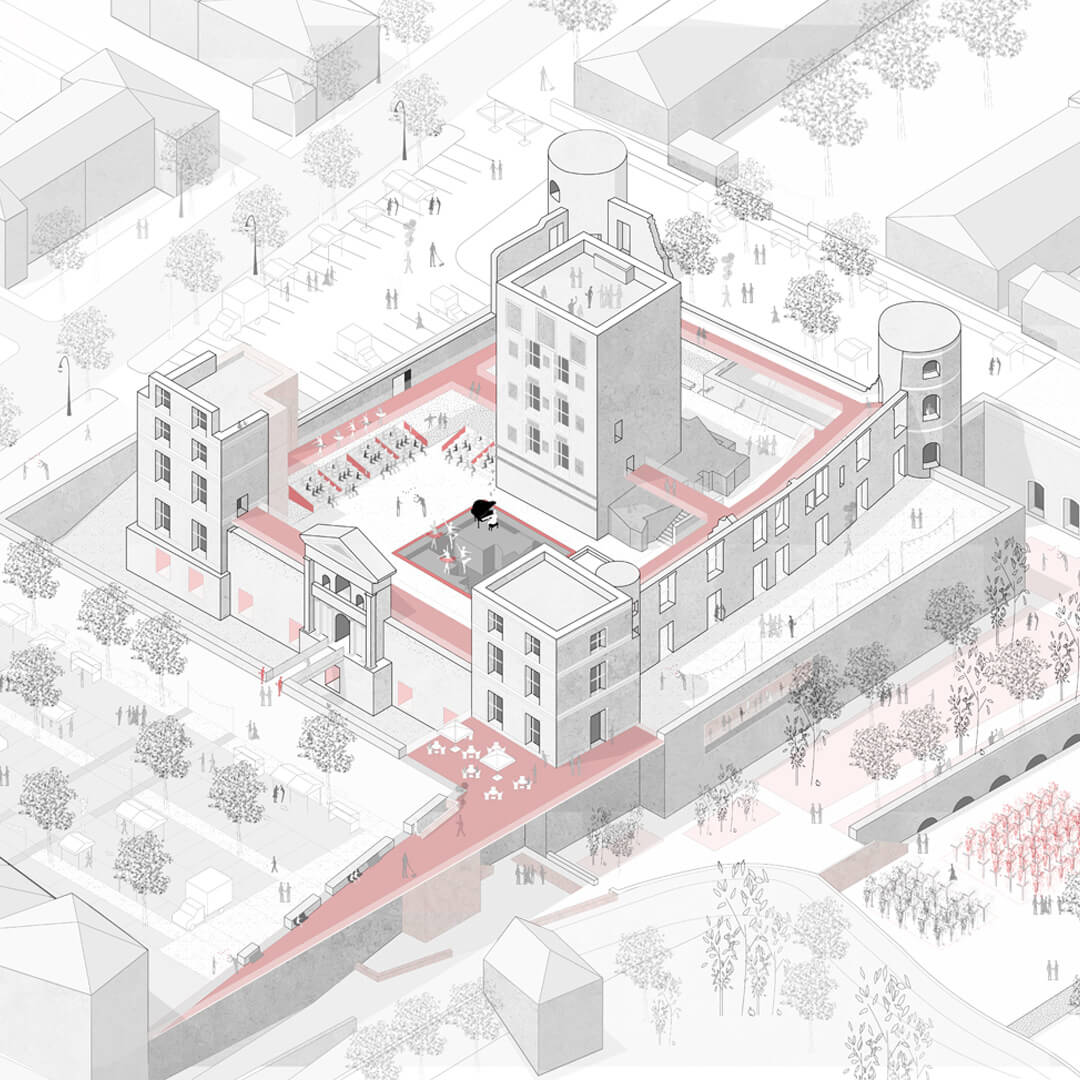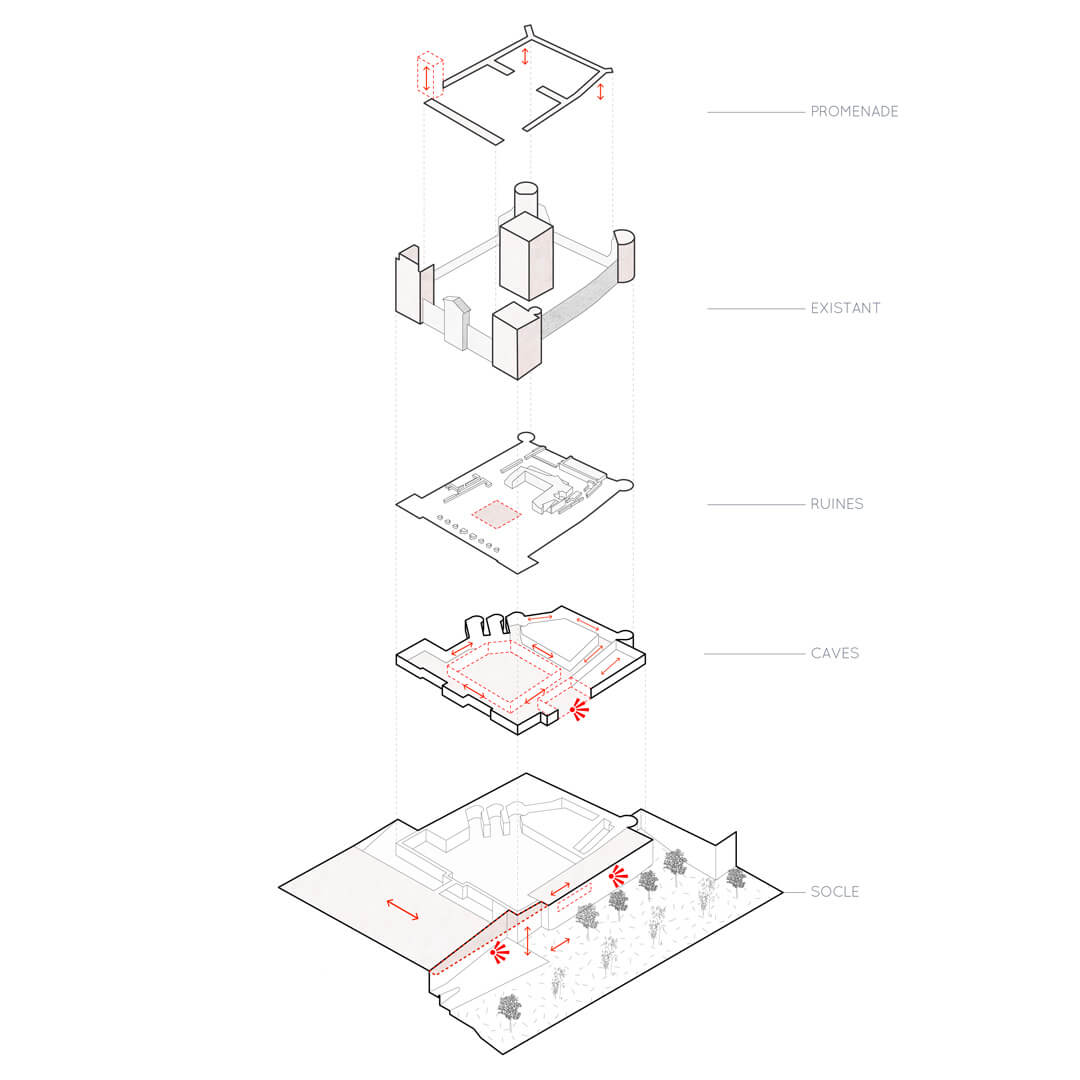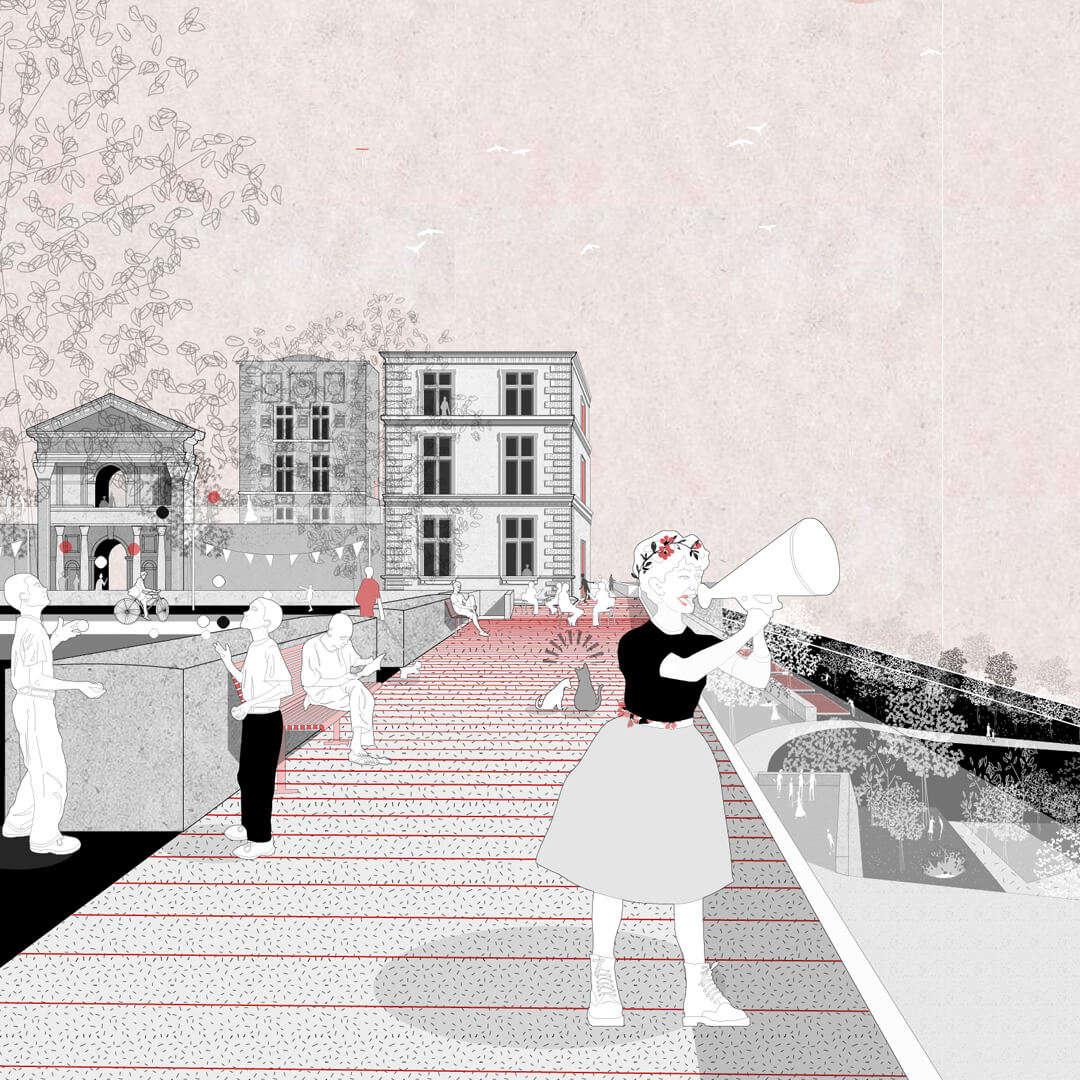Amélie Besvel+Florian Bechet
The project is the rehabilitation of a ruined castle in the south of France. The themes of the project revolve around wine, performing arts and culture.
The castle of La Tour-d’Aigues, witness to several centuries of history, has undergone numerous architectural transformations, but also important destructions towards the end of the 18th century. It is located on an exceptional site at the edge of an urban fabric to the west, dominating the landscape and agricultural surroundings that border the river Èze to the east.
Since its acquisition by the department of Vaucluse, the remains of the castle have been saved and restored in order to transmit to the public the riches of the past. The various cultural events organized within the castle allow the inhabitants and visitors to appropriate the spaces through culture. Today, the performing arts have revealed the scenographic wealth of the remains of this place. The artists knew how to appropriate the spaces and the identity of the place. The stone, the traces, the openings, the sky, the landscape constitute innumerable backdrops to the spectacles. The appropriation of the courtyards, the large terrace, the castle square and the cellars show different uses, ephemeral or more durable.
How to make yesterday’s and today’s heritage cohabit?
Our project aims to highlight the qualities of a site and an architectural palimpsest. It wishes to consolidate the process of appropriation of the place by the means of the culture and to support the transmission of the heritage of Luberon. We wish to project urban, programmatic and architectural grafts that enhance the existing heritage while highlighting the contemporary heritage.
Our first intervention participates in the articulation of an urban site to its landscape. The restructuring of the castle square aims at clarifying the uses by pedestrian frames with trees and parking spaces that promote the flexibility of the square. This square is linked to a panoramic balcony terrace that provides access to the castle terrace and its gardens. The latter are a place of learning, sharing and relaxation around the wine, fruit and market garden heritage of the Pays d’Aigues.
The double stake of our second intervention is to preserve the reading of the vestiges while encouraging the creation of places dedicated to the performing arts and the culinary heritage of the region. We propose to create an open-air cultural promenade around the old courtyards in order to link the different buildings of the castle. The large courtyard will be an exhibition and performance space, allowing artists to appropriate the place and re-enchant the castle’s special heritage. In the west pavilion, the tourist office in contact with the city will welcome various activities of the city and the castle. The south-east pavilion hosts a panoramic restaurant open onto the castle square. It also hosts cooking workshops highlighting local products. The Donjon hosts the earthenware museum and will allow access to an observatory on its terrace. The basement of the castle offers an itinerary around the Luberon wine. Permanent and temporary exhibitions and sensory experiences will highlight this important heritage of the region.
Authors: Amélie Besvel+Florian Bechet.
Location: Lubéron, France.
Year: 2020
Competition: Prix Wilmotte.
Prize: Honorable mention.
